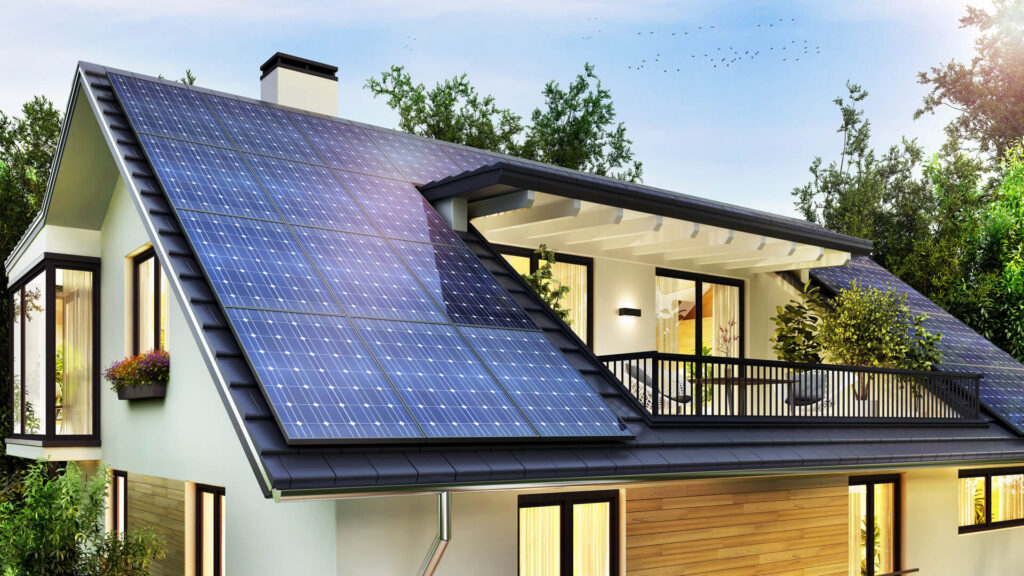Whichever way you look at it, whether through finances or environmental preservation, a solar power system can generate huge savings over time. According to experts, using a decent system for two decades could result in as much as $30,000 worth of energy savings. That means the true cost of solar panels would be worth it every single time.
So, what’s the real score with solar panels? And how much are they able to save you in a month?

Can You Save Money With Solar Panels?
There is no doubt that you can save money with solar panels. Panel systems can even bring a return on your investment sooner than you would expect. From rising home values and lower energy costs to federal tax benefits and future savings, these advantages could render the high initial cost of solar panels inconsequential.
How Much Money Exactly?
The basic solar setup produces around 300 to 800 kWh each month. That means the estimated 900 kWh of energy monthly consumed by the average US household is accounted for by up to 90 percent by these systems. That should be enough of a reason for many to transition to solar.
How does that translate to monthly savings? Using the average household as an example, homeowners could save up to $250 a month after installing a solar panel system and battery storage. There is no better time than now to start going solar. Not only could it drastically reduce your monthly electric bill, but it should help you gain headway on your quest to save our planet.
Why the High Electric Bills Despite My Solar Panels?
Your high electric bills could be down to the system’s faulty operations, which the company is to blame. Have them fix the issue and inform you of the ways to prevent them. Better yet, partner with a new company.
You could also be consuming more power than before. Check the wattage demands of your appliances and how many large devices you own. Both could factor into your increased energy bill.
Earning From Your Solar Panels
When a solar power system produces energy in excess or more energy than you are consuming, this energy gets sent by the system back to the grid. Upon signing a metering agreement with your utility company, you would be able to collect on this excess through a kWh credit. This would, subsequently, reflect on the next bill or as a deduction of the end-of-period total bill.
The Disadvantages of Solar Energy
What are the drawbacks of using a solar power system?
- It won’t work when the sun goes down
- Panels may not be attractive to look at
- Your roof may not be ideal for solar installation
- Some solar brands do more harm than good
- Some solar panels are low quality
Does Having a Solar Panel Mean You No Longer Need to Pay for Electricity?
No, it doesn’t. There will still be an amount in your electric bill, though it will be lower than using standard electricity alone. If you’re using an extensive system, it may cover the full extent of your usage and, in turn, not ask for you to pay anything. There may simply be an indication of how the net metering credits offset the monthly use.
Yes, solar panels do eventually pay for themselves. It might take a while before they do, but all users should get there in time. On average, it would take about 5 to 10 years before you no longer have to pay the utility company anything. However, it is worth noting that certain variables could change this, one being the panel system’s gross cost.
When Will Solar Panels Not Save You Money?
In most cases, the culprit is roof size or design. Your roof may not be designed to hold the number of solar panels required to offset your energy use. Additionally, the utility company’s metering program may not be ideal and lead to lower savings for the homeowner than usual. Your area could also be under a lot of shade, leading to a less efficient system.
Why Get a Solar Power System?
What’s great about a solar power system goes beyond its energy-saving benefits. It has the potential to impact the environment, as well positively. Not to mention, a sound system and metering program can lead to years of earnings and savings. However, keep in mind that solar panels are most beneficial for homes with regular access to sunlight.
Why Shouldn’t You Get a Solar Power System?
For all the benefits a decent solar power system can provide, it won’t be a practical installation if you live somewhere that’s cloudier or gloomier than it is sunny. These systems tend to have high upfront costs, so make sure they’re worth it on all aspects before considering one for your home or business.



